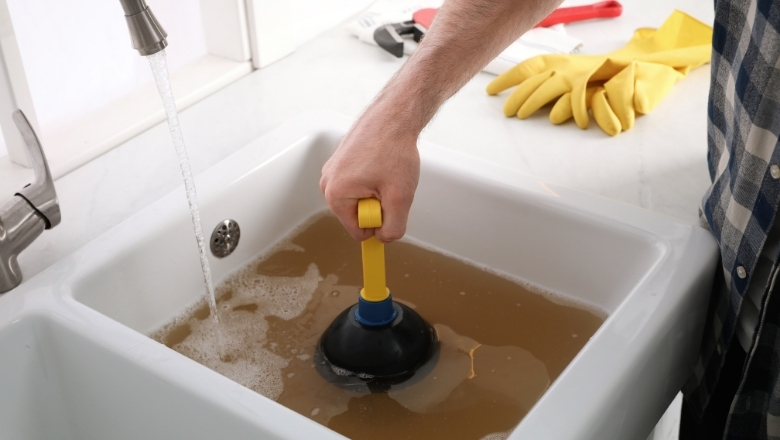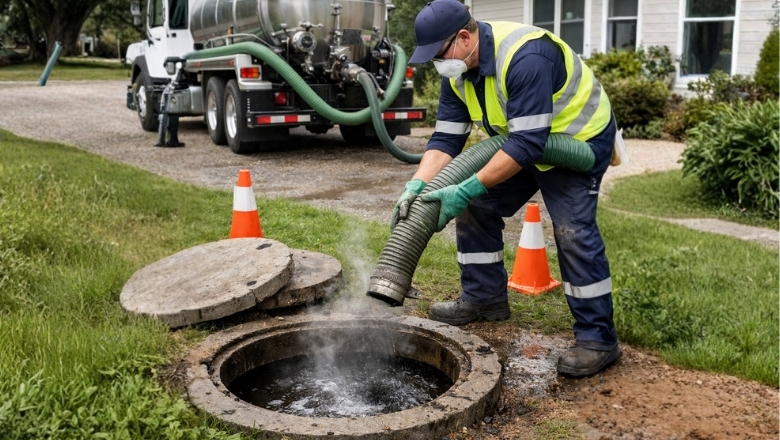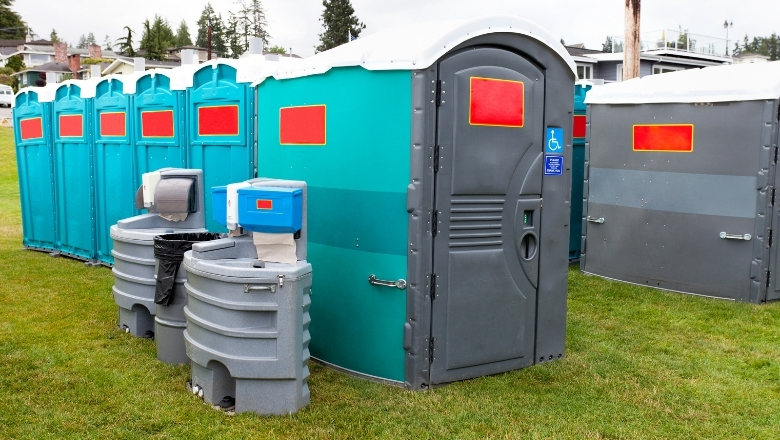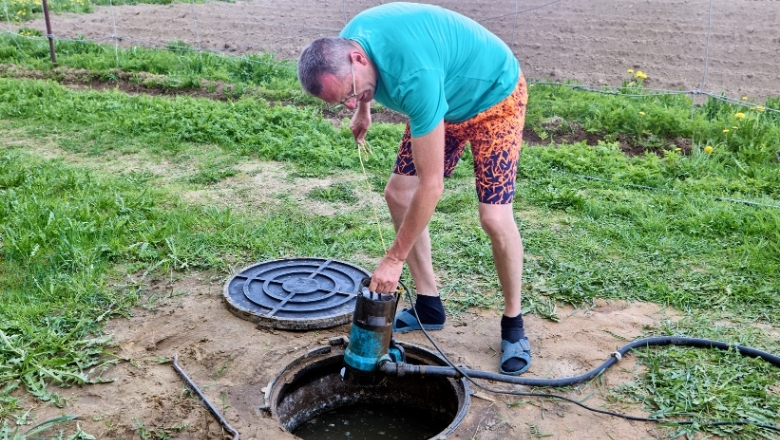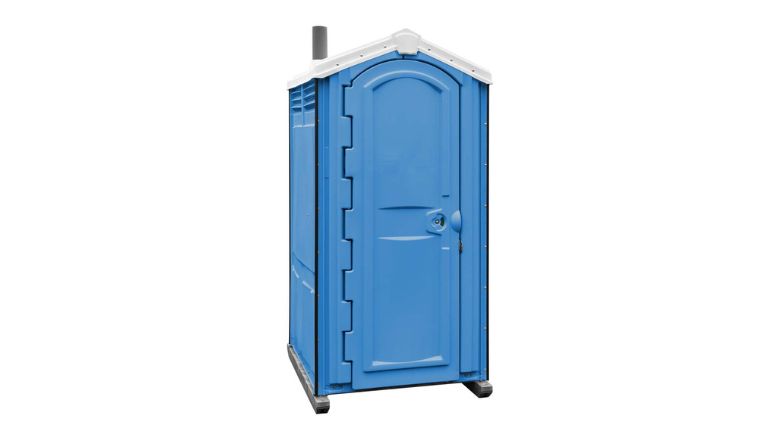A well-functioning commercial septic system is vital to any business, from office buildings and restaurants to industrial complexes, especially in areas like Rexburg, Pocatello, Rigby, and beyond. Commercial septic system maintenance, pumping, and treatment are extremely crucial to avoid health perils from poor flow, which can lead to irreversible consequences and involve costly repairs. By showing vigilance about emerging problems, businesses can safeguard their activities against septic system failures that can put their reputation at risk.
In this blog post by MVP Rentals, we will outline the most important warning signs that the septic tank in your commercial property has been compromised and how regular monitoring can help avoid expensive repairs, downtime, and health risks.
Understanding Commercial Septic Systems
Commercial septic systems form the backbone of many firms, ensuring complete and safe waste disposal. Though similar in role to residential ones, septic tanks for commercial buildings are designed to handle much higher volumes of wastewater and require more robust infrastructure in most cases.
Components of a Commercial Septic System
According to the top septic service experts in Idaho Falls who mostly deal with commercial wastewater management and grease trap maintenance, a typical commercial septic system includes different components for different functions. Some of the major components of the septic system include the following :
- Septic Tank: Where waste is initially stored and separated.
- Drain Field: Also called the leach field, this is where treated water is dispersed into the soil.
- Distribution Box: This component helps distribute effluent evenly across the drain field.
Differences Between Residential and Commercial Systems
Size is the most striking difference between residential and commercial septic systems. According to the leading septic service experts in Pocatello who mostly deal with commercial septic system maintenance and waste management plans, commercial units are designed for greater flows due to more occupants producing more wastewater, a higher usage rate, and sometimes hazardous materials being sent down the drains. Commercial systems often include additional treatment steps, such as commercial aerobic septic systems, to ensure that wastewater is thoroughly cleansed before release into the environment.
Key Operational Stages: Collection, Treatment, and Disposal
According to the top commercial septic system treatment, cleaning, pumping, maintenance, and installation contractors in Rexburg, waste flows from a facility’s plumbing system into the septic tank. Over time, solid waste settles to the bottom to form sludge, while oils and grease float to the top to form scum. The liquid waste in the middle, or effluent, is gradually dispersed into the drain field. The following three stages comprise the treatment and disposal process, which are critical:
Collection: Wastewater is gathered in the septic tank for separation and initial treatment.
Treatment: Bacteria break down organic matter in the tank, reducing the volume of waste.
Disposal: Treated effluent is discharged into the drain field, where it is filtered naturally by the soil.
Maintaining these stages ensures that your septic system health remains optimal.
The Importance of Monitoring
Leading septic system service in Rigby experts who mostly deal with different commercial septic tank sizes reveal that regular monitoring may mean the difference between a smoothly running operation and an environmental disaster. These safeguards protect the system from failure and costly repairs.
Costly Repairs That Can Be Avoided Through Early Detection
Failure of the commercial septic system results in severe damages and quite expensive repairs, depending on the cost and level of damage. A full system replacement or repair can cost upwards of hundreds of dollars. According to the top commercial septic system maintenance and pumping contractors in Idaho Falls, monitoring can prevent most of these issues before they become so critical that it saves your business several thousands in possible repairs and downtime.
Manual vs. Automatic Monitoring
While essential, manual inspections cannot always detect every issue in real time. According to the top commercial septic system cleaning, pumping, maintenance, and installation experts in Rexburg, that is where automatic monitoring systems excel: equipped with sensors and other types of alarms, they quickly detect anomalies in excessive water usage, leaks, or buildup in the septic tank. In fact, these modern technologies will help a business entity sustain the health of its septic system without the need for constant checks by hand.
Signs Your Commercial Septic System is at Risk
Leading commercial septic system treatment, cleaning, installation, and maintenance experts in Pocatello reveal that recognizing early warning signs can help you avoid turning a minor problem into a disastrous failure. The most common signs your commercial septic system could be in jeopardy include the following.
1. Foul Odors Around the System or Property
Unpleasant odors are typically the first warning sign that you have a septic issue. They often indicate a backup deep inside the system or even a commercial septic tank overflow.
2. Slow Draining Fixtures
According to the leading commercial septic system service experts in Twin Falls, if your sinks, toilets, and other sinks drain slowly, you could be experiencing some sort of issue, like a blockage further down the septic system. This is especially common in high-traffic areas and should be addressed immediately.
3. Sewage Backups
A sewage backup is one of the most urgent warning signs of a failing commercial septic system. Backups often happen when the tank is full or blockage is out-competing the actual drainage.
4. Unusually Lush or Soggy Areas Around the Drain Field
An area over the drain field that is greener than the rest or soggier may mean your septic system leaks. When effluent doesn’t get absorbed well, water gathers on the surface, creating a marshy area.
5. Unexplained Rise in Water Bills
According to the top commercial septic system experts in Rigby, unexpectedly high increases in your water bill can be a red flag for an underground septic system leak. Keep checking your water usage for any discrepancies.
6. Alarming System Alarms and Alerts
If your system is installed with updated remote septic system monitoring tools, alarms and alerts will inform you whenever something goes wrong. If you choose to ignore these warnings, you may suffer grave problems later.
Preventing Risks Through Proactive Monitoring
Taking proactive steps can prevent major issues, and your system will continue to work effectively.
1. Conducting Regular Inspections
Regular inspections by a professional often catch potential problems before they become emergencies, and a detailed commercial septic tank inspection checklist can make sure no item in the system has been overlooked.
2. Importance of Pumping on Schedule
Regular commercial septic tank pumping is an important part of the maintenance needed to prevent sludge buildup, which can clog the system and cause backup issues. Pumping schedules vary based on size and usage, but for most systems, every three to five years is adequate.
3. Monitoring Water Usage in Your Facility
Monitoring water usage avoids overloading the septic system. Installing monitoring systems that track usage patterns in businesses with high water usage is critical.
4. Using Grease Traps to Protect the System
According to the leading septic system service contractors in Twin Falls, who mostly deal with drain field problems, grease trap maintenance, and sewage backup prevention, grease wreaks havoc on septic systems. Installation and regular maintenance of grease traps effectively prevent most concerns affecting septic tanks for commercial applications.
5. Identifying and Repairing Leaks Early
Leaks are silent threats to your septic system. They often happen long before you notice anything is wrong with it. Leak detection in monitoring systems allows you to find leaks as soon as possible.
6. Preventing Root Intrusion
Tree roots growing into your system’s pipes can damage them. Root intrusion prevention in septic systems requires periodic assessment of surrounding vegetation and proactive maintenance.
7. Managing Chemicals in Your Wastewater
Avoid pouring harmful chemicals, which can disturb the bacteria needed to decompose the wastewater in your system. According to the leading commercial septic system service contractors in Pocatello, chemical management in the treatment wastewater of your facility’s wastewater helps protect the environment and your septic system.
Advanced Monitoring Tools and Technologies
Modern tools and technologies offer businesses real-time data and predictive insights to avoid septic system failures.
1. Remote Septic System Monitoring Solutions
Remote septic system monitoring tools allow you to monitor the system’s performance from anywhere. These tools alert you when potential problems arise, providing peace of mind even when you’re offsite.
2. Sensors and Alarms for Early Detection
Septic systems that are sensor- and alarm-enabled will be able to detect any overflow in the tank, blockages, or leaks before this turns into a big issue.
3. Data Analytics for Predictive Maintenance
According to the top commercial septic system installation, maintenance, pumping, and cleaning experts in Twin Falls, advanced data analytics in septic systems enable you to predict exactly when you’ll need maintenance to avoid problems. You look at the trends for problem areas to be proactive and prevent system failure.
FAQs
1. How often should a commercial septic system be inspected?
Commercial septic systems should be inspected annually to ensure they operate properly and any impending problems are discovered early.
2. What are the most common causes of septic system failure?
The most significant reasons for septic system failure include improper maintenance, misuse of water, root invasion, and system overloading.
3. What are the benefits of using automated monitoring systems?
Automated septic system monitoring reports quickly, gives early warning signals and provides predictive maintenance insight to minimize system failure.
4. How can I tell if my septic drain field is failing?
Signs include soggy ground, foul odors, and sewage backups near the drain field.
5. What should I do if my commercial system triggers an alarm?
Contact a professional septic service professional like MVP Rentals immediately to inspect and address the issue. Prompt action can prevent more significant problems later.
Final Takeaway
You should keep your commercial septic healthy, ensuring your business runs smoothly and without interruption. With monitoring and proactive maintenance, costly repairs can be avoided, and the system can work at an optimized level. If you see any of the above signs, call us today at MVP Rentals, the #1 professional in septic service in Rexburg, Idaho Falls, Pocatello, Twin Falls, Rigby, and surrounding areas.
With advanced monitoring tools and decades of experience, MVP Rentals ensures your septic system stays in top condition. Protect your commercial septic system by partnering with MVP Rentals.
At MVP Rentals, we pride ourselves on being more than a septic service. We focus on and are committed to supporting local businesses with timely, high-quality solutions. Our mission is to deliver exceptional service that reflects our core values of integrity, professionalism, and customer satisfaction. With years of expertise and a team of highly qualified professionals, we ensure your commercial septic system is efficient and problem-free.
From commercial septic tank cleaning and routine inspections to system repairs, MVP Rentals offers a wide range of services for seamless business operations. Contact you today at (208) 244-7024 for a professional consultation and dependable service.


